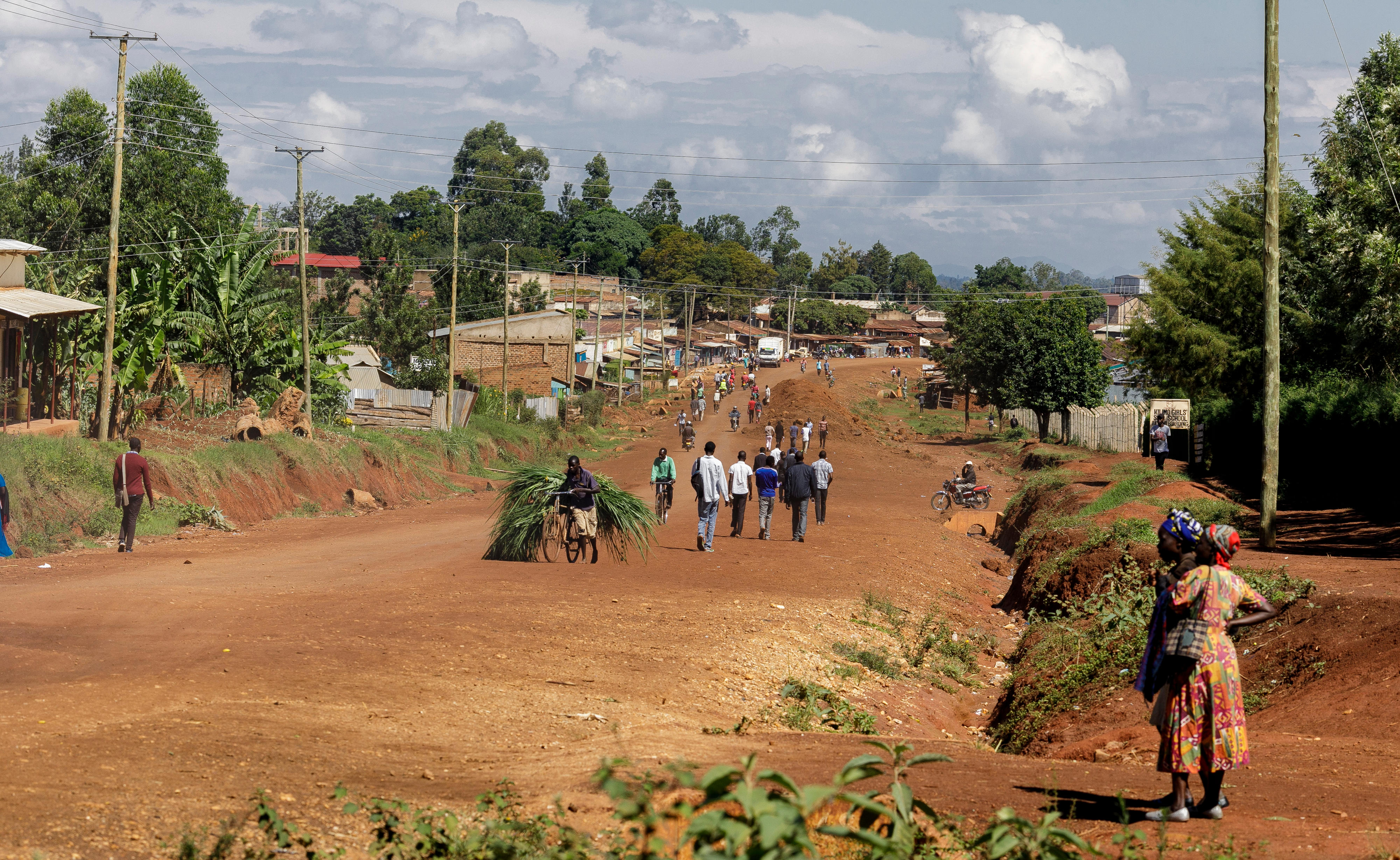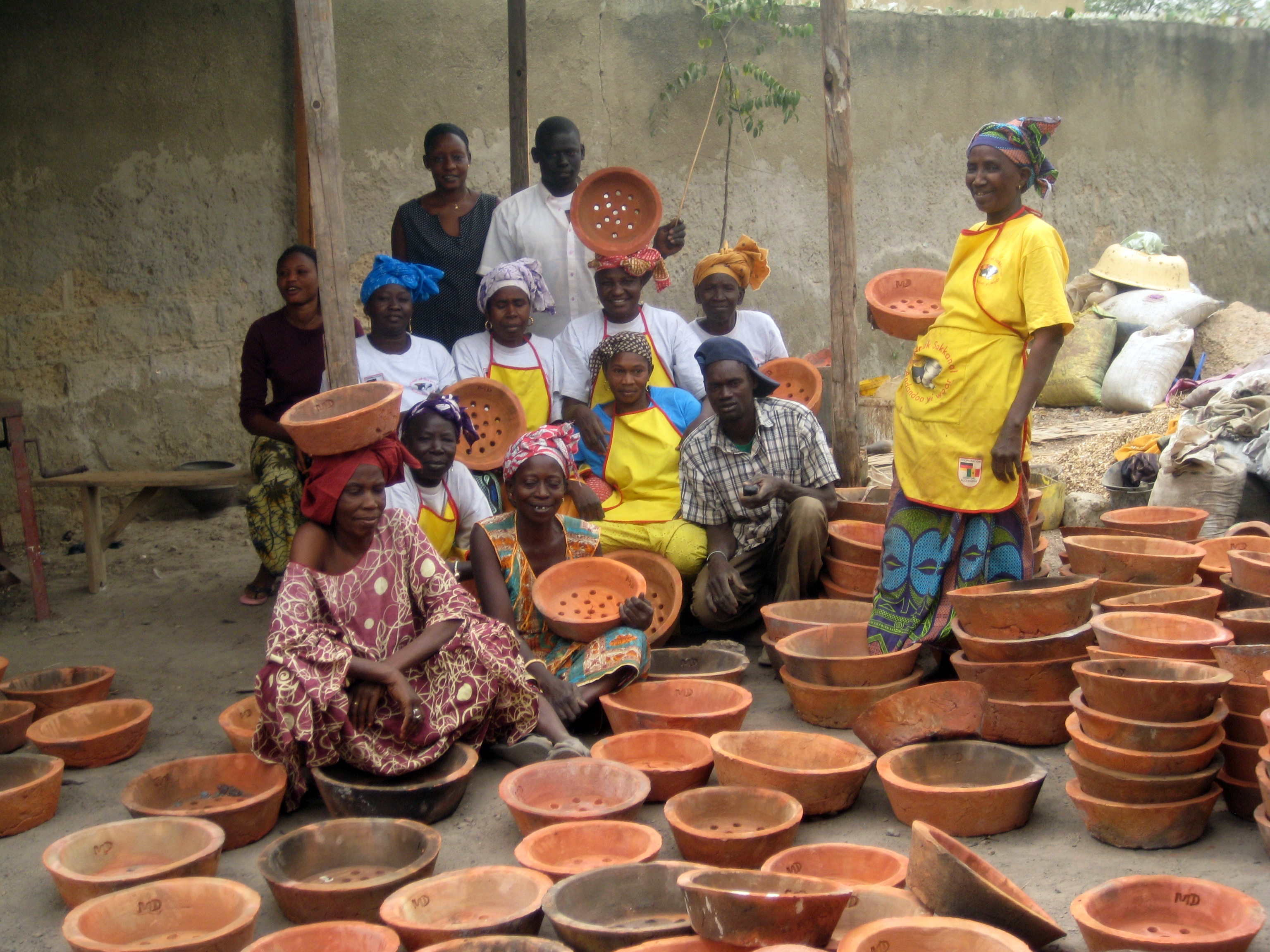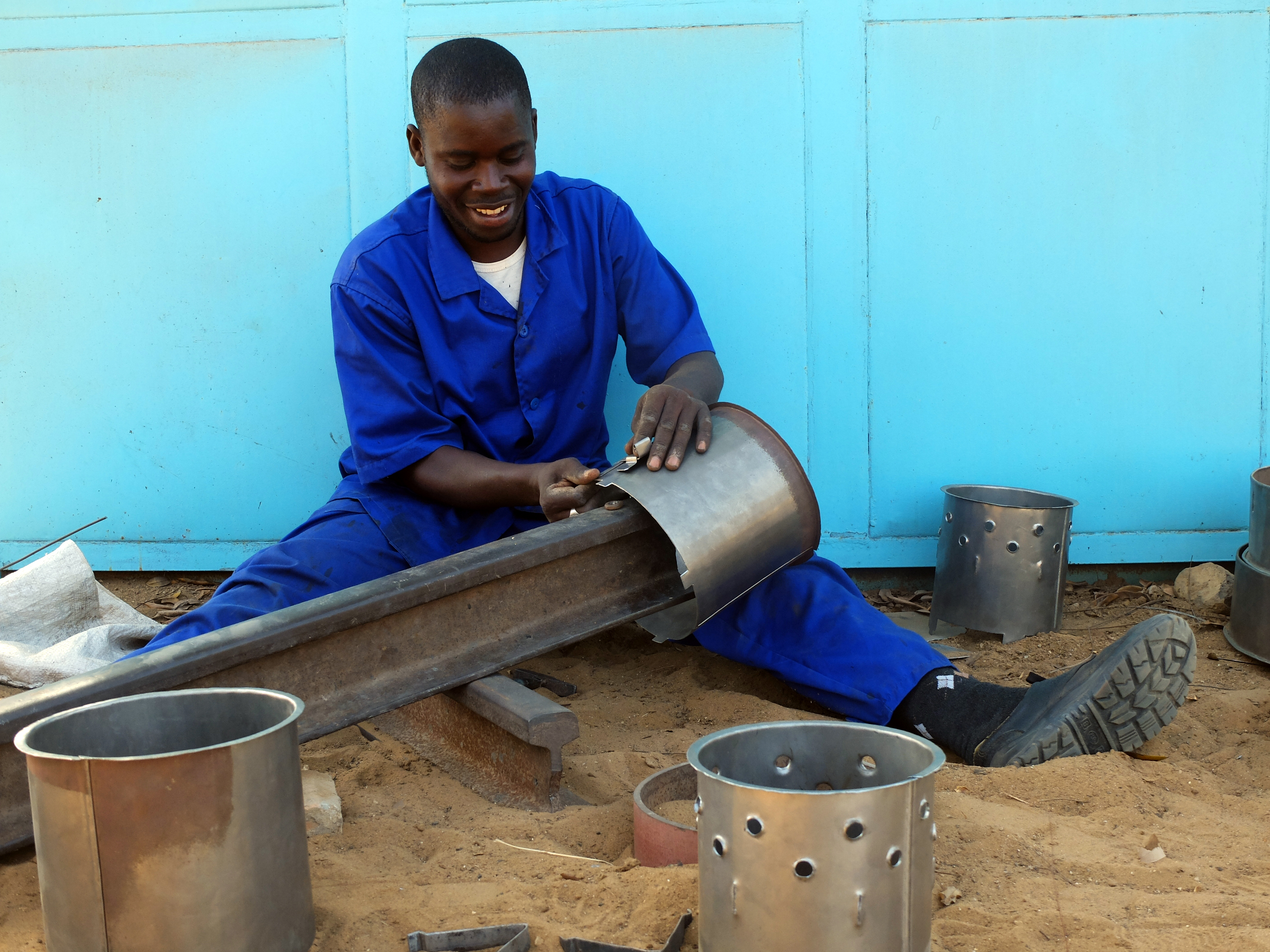Rural road in Kenya
Copyright© Thomas Imo/photothek.net
Kenya and Senegal: Cooperation in action Improved cooking technologies help protect the climate
A project run jointly by the Governments of Kenya and Senegal, the BMZ and the Green Climate Fund (GCF) is deploying improved low-emission stoves to reduce the carbon footprint of cooking and improve the living conditions of many people, especially women.
Around 15 per cent of the global demand for energy is currently being covered by traditional biomass such as firewood, charcoal and plant residues. Some 2.8 billion people cook their daily meals with such biomass. Kenya and Senegal are no exception: more than 80 per cent of Kenyans use biomass for cooking and heating. The corresponding figures in Senegal are 58 per cent of the urban population and 86 per cent of the rural population.
Women producers of ceramic inserts based in the Kaolack region of Senegal.
Burning such materials releases high levels of greenhouse gas emissions. The Intergovernmental Panel on Climate Change (IPCC) estimates that the use of improved cookstoves would reduce emissions by between 0.6 and 2.4 gigatonnes of carbon dioxide annually.
In Kenya and Senegal alone, improved stoves could prevent about 25 megatonnes CO2 equivalent emissions in the period up to 2030. The project, over its duration, is to lead to the equivalent of over six megatonnes of carbon dioxide being saved. Both countries' Nationally Determined Contributions (NDCs) explicitly take account of that potential.
Boosting both supply and demand
Ousmane Thiam, an improved fireplace craftsman based in the Dakar region of Senegal
The aim of the project is to foster the use of efficient cooking technologies while simultaneously strengthening production and supply capacity. Local producers are being supported through training and machinery. In parallel, the project educates rural households about the health hazards involved in cooking fires and the benefits of efficient stoves, thus lending a sustained boost to demand.
Overall, the project is planned to directly benefit some eleven million people in nearly two million predominantly rural households. About one third of these households are headed by women. Improved cookstoves lower the risk of respiratory illness and, what is more, they reduce the time that people spend on collecting firewood and cooking. This is giving people – especially women – more time for education, income generation and participation in society. Children also benefit from the cleaner indoor air; they attend school more regularly.
Efficient stove technologies thus deliver important benefits for health, education and climate change mitigation, with a positive impact on social stability and poverty reduction.
This is becoming possible, not least, thanks to the project's close cooperation with the Green Climate Fund (GCF). With its contribution of two billion euros from the BMZ budget for the period from 2024 to 2027, Germany is among the biggest donors to the Fund. On top of GCF funding, the project in Kenya and Senegal has received 12.8 million euros in support from the BMZ via GIZ. This combined financing creates synergies, boosts local impact and facilitates coordination among international donors.
As at: 19/06/2024


